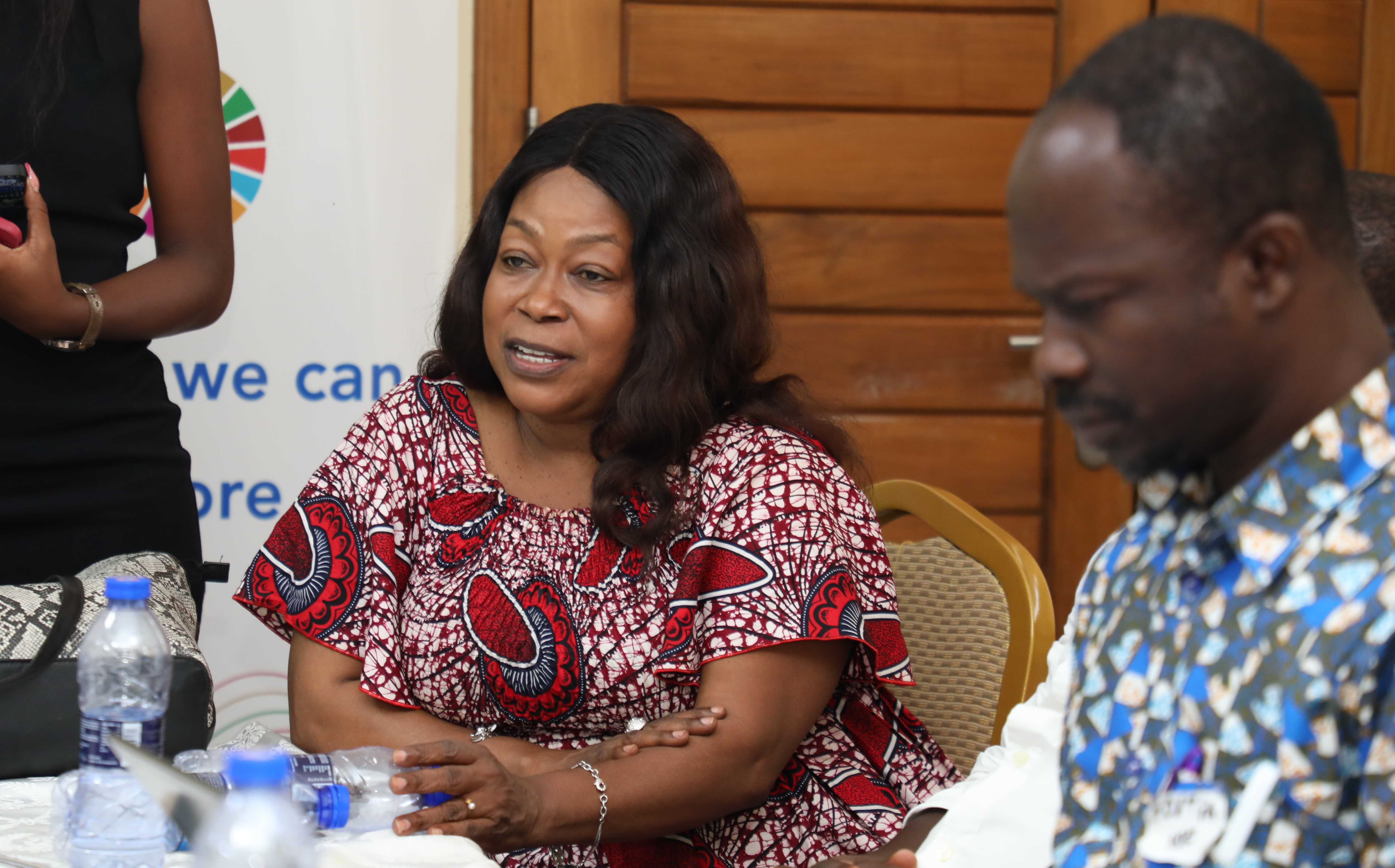Strengthening capacity to build financial resilience against climate risks
December 22, 2023

Training Session
Extreme weather events including droughts, floods and fire outbreaks are often devastating for at-risks communities. As risk managers, the insurance industry can play a critical role in building climate-resilient communities. This is because insurance solutions can facilitate early action in the face of a disaster, and expediate recovery.
However, protection gaps persist. For instance, in Ghana, about 70% of Ghanaians do not have access to any form of insurance, underscoring the scope of risks and the need for urgent proactive measures.
As part of its support to the Government of Ghana to mitigate risk and encourage insurance financing, the United Nations Development Programme (UNDP), in collaboration with the Insurance Development Forum (IDF), provided capacity building training for key government agencies to strengthen their roles in implementing climate adaptation and risk mitigation strategies at the national and local levels.
Stephen Kansuk, Head of the Environment and Climate Cluster of UNDP in Ghana highlighted the importance of the training. He said: "in empowering nations to navigate the challenges of a changing climate, we are not just building resilience; we are fostering a legacy of environmental stewardship, economic stability, and a sustainable future for generations to come".
Eric Kofi Afornorpe, a climate change focal person at the Ministry of Local Government noted the timeliness of the training:
“This training is timely because it underscores the need to tailor our policies at addressing risk mitigation to ensure that strategies are effective and inclusive. This training is not just strategic, it is a pledge to inclusivity, ensuring that no community is left vulnerable in the face of evolving risks”.
Considering current global uncertainties, the training identifies finance as the bedrock of effective climate adaptation and risk mitigation strategies. This is because risk and insurance financing will provide the essential resources needed to fortify communities against the escalating challenges posed by a changing climate.
Charlotte Norman, Director for Climate Change Adaptation and Disaster Risk Reduction at NADMO, emphasized the importance of finance in adopting and implementing strategies that lead to climate adaptation. She said: “I have come to appreciate the indispensable role of finance in fortifying our defense against climate challenges. This training has exposed me to the transformative power of financial strategies tailored to climate resilience”.
As these empowered officials return to their posts, they carry with them the torch of sustainable development, illuminating a path toward a future where climate adaptation and risk mitigation are not just policies on paper but integral components of a resilient and thriving society.
By taking the lead in risk and insurance financing, government agencies can establish comprehensive frameworks that shield communities, businesses, and individuals from the adverse impacts of unforeseen events.
The training forms part of a series of activities that will help to expand interventions to protect more vulnerable communities to ensure that no one is left behind. Participants at the training were drawn from key government agencies with the ability to influence policies, and these include the Ministry of Finance, National Disaster Management Organisation (NADMO), National Insurance Commission, and other industry partners.

Eric Kofi Afornorpe, a Climate change focal person at the Ministry of Local Government

Charlotte Norman, Director for Climate Change Adaptation and Disaster Risk Reduction at NADMO

Trainer, Kamal Ahmed, interacting with participants

 Locations
Locations

